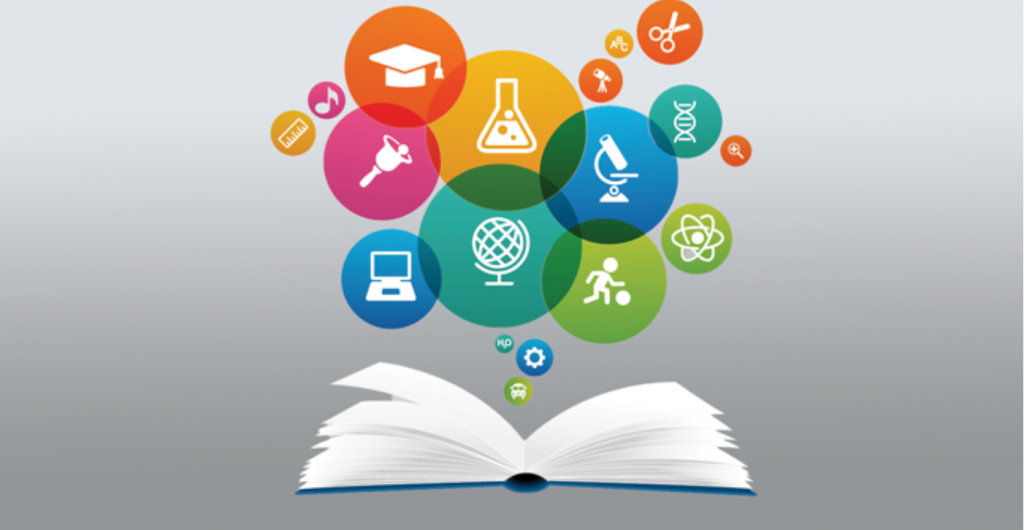Home / Blogs / Open science round-up: May 2022
Open science round-up: May 2022
In a new regular feature, Jenice Goveas shares the latest news on open science from the month of May and new opportunities for June and July.

Big stories in open science
- Good News for the African Open Science Movement
The East African Science and Technology Commission (EASTECO), the Public Library of Science (PLOS), and the Training Centre in Communication (TCC) Africa have announced collaboration towards implementation of Open Science and Open Access principles along with translation and communication of science for the East African Community Partner States. “We are eager to collaborate with PLOS and TCC Africa to increase the adoption of Open Science principles for our member states,” said Dr. Sylvance Okoth, Executive Secretary, East African Science and Technology Commission. “This partnership will also enable us to better promote the benefits of Open Access publishing for researchers in East Africa.” - EU Agreement to Reform Research Assessment
Research organizations in the EU are reportedly close to finalising an agreement to reform the way research outputs are evaluated. They plan to reduce the importance of journal and publication metrics. The signatories of this legally nonbinding agreement will become part of a coalition of those willing to put the reforms into practice. - COAR Annual Meeting 2022
The Coalition of Open Access Repositories Annual Meeting took place in Madrid from 17-20 May. The theme was ‘The Role of Repositories in the Radical Transformation of Scholarly Communications’. The programme focused on initiatives to connect, modernize and innovate repositories and their networks, along with discussions on the progress and plans for the COAR Notify Project, which aims to develop and accelerate community adoption of a standard, interoperable and decentralized approach to linking research outputs. - Second anniversary of SciELO Preprints server
It’s been two years since Latin America’s first preprint server Scientific Electronic Library Online (SciELO) Preprints began operations regularly. The server has contributed significantly to the advancement of Open Science by strengthening the open infrastructure of scholarly communication with geographic and cultural diversity, open software, low maintenance cost, multilingualism and interoperability. So far, the SciELO preprints server has posted about 1,600 preprints from 29 countries, written in Portuguese, English and Spanish. - “Many Labs” Wraps up
Ten years ago, mindful of the trend of research being increasingly generated, but not increasingly revisited, Brian Nosek, a professor of psychology at the University of Virginia and co-founder of the independent Center for Open Science, along with his colleagues began to re-run a series of published scientific experiments resulting in the creation of the “Many Labs” project. The project tested the replicability of many classic and contemporary studies. Many Labs experiments were crowd-sourced and spanned 36 independent research sites, involving 6,344 participants while producing five major papers. This global effort wrapped up at the end of April 2022. However, it has resulted in several offshoots with the aim of advancing the importance of replicability across the scientific community including Many Babies, Many Smiles, Many Dogs, Many Birds and Many EEGs - AAAS new leadership aims for global open science
Newly elected President of AAAS, Keith Yamamoto, Stated that the establishment of a global open science enterprise was among his major goals for the Association. - Open Science finds its place in Quad Tokyo Summit
The leaders of the Quad nations—Australia, India, Japan, and the United States announced that they “will jointly develop and promote the concept of Open Science in the region and globally”. - Major boost to Open Science Project ASAP
The consortium that created the artificial intelligence (AI)-driven Structure-enabled Antiviral Platform (ASAP), led by international scientists from a non-profit, open-science project received funding of $68,662,387 million from the US National Institutes of Health (NIH) to discover and develop globally accessible and affordable novel oral antivirals to combat COVID-19 and future pandemics. - Making Preprints more visible
With the aim of encouraging researchers to openly and rapidly share their findings, Europe PubMed Central has made over 420,000 preprint abstracts from 24 preprint servers discoverable alongside journal publications. Europe PMC now includes the full text of preprints that acknowledge funding from at least one of its funders and have a Creative Commons licence. This move follows the success of the COVID-19 full text preprints initiative, which includes over 31,000 full text COVID-19 preprints.
ISC Members Session on the UNESCO Open Science Recommendation
Register here
14 June, 07:30 UTC | 09:30 CEST
15 June, 14:30 UTC | 16:30 CEST
This Members Session will provide an introduction to the UNESCO Recommendation on Open Science and its implications and discuss the next steps towards its implementation with governments and the scientific community.
- EARMA is all ears to Open Science
- The European Association of Research Managers and Administrators (EARMA) is mulling the idea of forming an open science group to offer assistance to universities on open science.
- Open Access in the Shadows
- The Open Access Scholarly Publishing Association (OASPA) conducted a Webinar titled ‘Shadow Libraries and Access to Knowledge: Origins, Policies, Legality, and Accessibility’ on 12 May 2022. The discussions addressed the origins and architecture of these forms of widely used online repositories, their position in relation to Open Access policies, the legal implications in terms of copyright and fair use, and the learnings that can be gained in terms of accessibility.
- 7th World Conference on Research Integrity
- (WCRI)The theme of the conference was ‘Fostering Research Integrity in an Unequal World’. WCRI are held biennially and focus on the promotion of responsible research practices. Previously held WCRIs resulted in important declarations including the Singapore Statement on Research Integrity, the Montreal Statement on Research Collaborations and the Hong Kong Principles on Research Assessment. WCRI 2022 aims to publish a statement urging action on the persistent imbalances in research across multiple fields while improving inclusion and ethics.
- Closing a deal on a regional open science ecosystem in Latin America
- With the aim of promoting knowledge as an accessible non-profit good, The Scientific Information System Redalyc (Mexico), the Federated Network of Institutional Repositories of Scientific Publications “LA Referencia” and the Latin American Cooperation of Advanced Networks, “RedCLARA”, (Uruguay) have signed an agreement to constitute a general framework of collaboration to establish and implement the principles of openness, consensus, inclusion and harmonization for the consolidation of a Regional Open Science Ecosystem. It aims to Promote metadata interoperability between Diamond and Green Open Access and Collaborate in the development of open software that can help achieve this goal while improving visibility and contributing to new forms of scientific evaluation.
Open Science Events and Opportunities:
- San Francisco Declaration on Research Assessment (DORA) announces Science Policy internships, for recent graduates and current students with an interest in scholarly communications, science policy and science diplomacy.
- Registration is now open for the OASPA Online Conference on Open Access Scholarly Publishing 2022 which will take place from 20 -22 September 2022 with the theme Beyond Open Access to equitable open scholarship and science practices and will address many timely and fundamental topics relating to open scholarly communication. The Committee invites organisations and individuals to submit proposals for ‘Poster Lightning Talk’ presentations by 17 June 2022.
- The Berlin University Alliance is convening a high-level Public conference to explore Stakeholder inclusion in European Science, in Brussels on 30 June 2022, to explore effective stakeholder inclusion throughout the research value chain.
- To advance the implementation of the UNESCO- Recommendations on Open Science, UNESCO, in collaboration with the Journal of Science Policy & Governance (JSPG) and the Major Group for Children and Youth (MGCY) is launching a special issue on Open Science Policies as an Accelerator for Achieving the Sustainable Development Goals.
Authors of three selected publications will be invited to present their research findings at special events organized by UNESCO and MGCY. The Deadline for submission is 10 July 2022. - UNESCO has also launched a Global Call for Best Practices in Open Science. The resulting compendium of best practices will be a useful tool to better understand the current landscape of open science and share lessons learned. It aims to help identify and connect open science actors around the world, and further develop innovative solutions for open science in a collaborative, inclusive and transparent manner. Anyone involved in an open science initiative can provide inputs in English, French or Spanish, by 15 July 2022.
- Plan S has launched a survey to gather feedback on the impact of open-access policy on publishing practices and career progression.
Our top ten open science reads from May:
- Dismantling the ivory tower’s knowledge boundaries – A call for open access as the new normal in the social sciences post-COVID
- Transparency versus security: Open science in the age of biotech advances
- The rise of preprints- How COVID-19 has transformed the way we publish and report on scientific research
- Researchers should be assessed on quality not quantity: here’s how
- Who Uses Open Access Research? Evidence from the use of US National Academies Reports
- Welcome to Hotel Elsevier: you can check-out any time you like…not
- What Do You Think About Preprints?
- Pandemic brings preprints into the spotlight
- What is open source software and how does it work?
- Open access in low-income countries — open letter on equity
Open for feedback
This was the first edition of a new regular feature on open science, looking back at big news stories, events and opportunities and stories generating debate in the open science world. Would you like to receive this as an email newsletter? Do you have any other comments? We’re keen to hear your feedback below.
The future of scientific publishing
Find out more about the ISC project exploring the role of publishing in the scientific enterprise, asking how the scholarly publishing system can maximize benefit to global science and to wider audiences for scientific research.
Image by vnwayne fan on Unsplash

